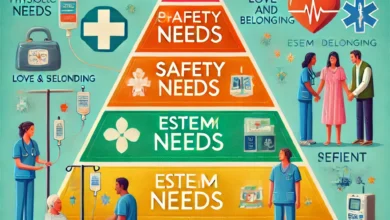The Power of Communication Skills in Nursing: Why Great Nurses Are Great Communicators

In the dynamic world of healthcare, effective communication is a cornerstone of quality nursing care. From understanding patients’ needs to collaborating with interdisciplinary teams, a nurse’s ability to communicate clearly and compassionately can mean the difference between good and exceptional care. This article delves into why communication is vital for nurses and how mastering it can elevate both patient outcomes and professional growth.
1. Why Communication Matters in Nursing
Nursing is not just about clinical skills; it’s about building connections. Strong communication skills enable nurses to:
- Understand Patient Needs: Active listening allows nurses to comprehend patients’ concerns, preferences, and symptoms, even when patients struggle to articulate them.
- Enhance Patient Safety: Clear communication reduces errors in medication administration, treatment plans, and handoffs between caregivers.
- Build Trust and Rapport: A compassionate tone and genuine empathy foster trust, encouraging patients to share vital information.
- Educate Patients and Families: Explaining diagnoses, treatments, and aftercare in simple terms empowers patients to take an active role in their health.
2. Characteristics of a Good Nurse Communicator
A good nurse isn’t just proficient in medical procedures—they excel in interpersonal interactions. Key traits include:
- Empathy: Understanding and sharing the feelings of patients create a bond of trust.
- Clarity: Avoiding medical jargon and using plain language ensures understanding.
- Active Listening: Focusing fully on what the patient says helps address their needs effectively.
- Adaptability: Adjusting communication styles based on the patient’s age, cultural background, or emotional state.
3. The Role of Communication in Patient Outcomes
Studies have shown that effective communication can significantly improve patient outcomes. For example:
- Better Adherence to Treatment: Patients are more likely to follow treatment plans when they understand them thoroughly.
- Reduced Anxiety: Clear explanations and reassurance can alleviate patient fears, especially before procedures.
- Improved Recovery Rates: A supportive nurse-patient relationship encourages positivity, which can aid in recovery.
4. Communication with Multidisciplinary Teams
In modern healthcare, collaboration is key. Nurses must communicate seamlessly with doctors, therapists, social workers, and other professionals to ensure cohesive care. Using tools like SBAR (Situation, Background, Assessment, Recommendation) can streamline this process and reduce misunderstandings.
5. Overcoming Communication Barriers
Despite its importance, communication in nursing isn’t always easy. Nurses often face challenges like:
- Language Differences: Using interpreters or translation apps can bridge gaps.
- Emotional Stress: Training in managing difficult conversations can help nurses stay composed and effective.
- Workplace Noise and Interruptions: Creating a culture of active listening and minimizing distractions is crucial.
6. Developing and Enhancing Communication Skills
Even the best communicators can improve their skills through practice and training. Consider these strategies:
- Enroll in Workshops: Many organizations offer training in therapeutic communication and conflict resolution.
- Seek Feedback: Ask colleagues and patients for constructive feedback on your communication style.
- Practice Active Listening: Make a conscious effort to listen without interrupting or forming a response prematurely.
- Use Technology: Tools like electronic health records (EHR) can enhance clarity in documentation and communication.
7. Real-Life Examples of Great Communication in Nursing
Imagine a nurse comforting a patient anxious about surgery by explaining each step of the process, using a calm tone and answering every question patiently. Another example is a nurse who works with a patient’s family to understand cultural practices that influence care, ensuring respect and comfort for everyone involved.
These instances highlight how communication transforms ordinary care into personalized, high-quality healthcare experiences.
Conclusion
Good nurses are defined not just by their technical expertise but by their ability to connect, educate, and advocate through exceptional communication skills. In a profession built on trust, empathy, and understanding, strong communication can enhance patient care, improve outcomes, and foster teamwork.
References
- American Nurses Association. (n.d.). The Importance of Effective Communication in Nursing. Retrieved from www.nursingworld.org
- Institute for Healthcare Communication. (n.d.). Impact of Communication in Healthcare. Retrieved from www.healthcarecomm.org
- O’Hagan, S., Manias, E., Elder, C., Pill, J., Woodward-Kron, R., McNamara, T., & Webb, G. (2014). What counts as effective communication in nursing? Journal of Advanced Nursing, 70(1), 20–32. doi:10.1111/jan.12172
- World Health Organization. (2023). Strengthening Communication in Health Care Teams. Retrieved from www.who.int
- National Council of State Boards of Nursing. (n.d.). Interpersonal Skills for Nurses. Retrieved from www.ncsbn.org




